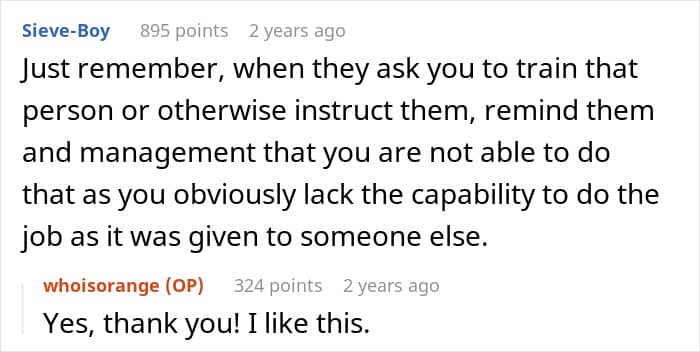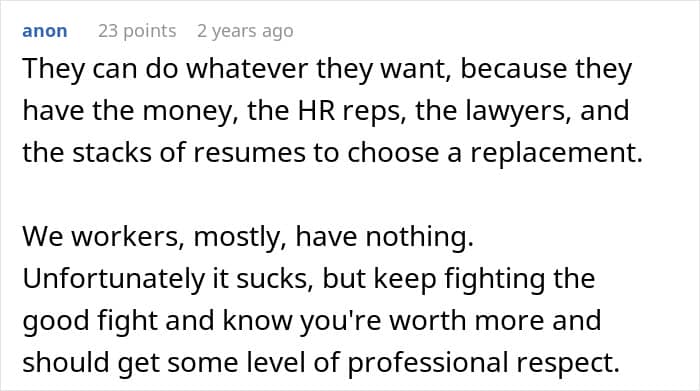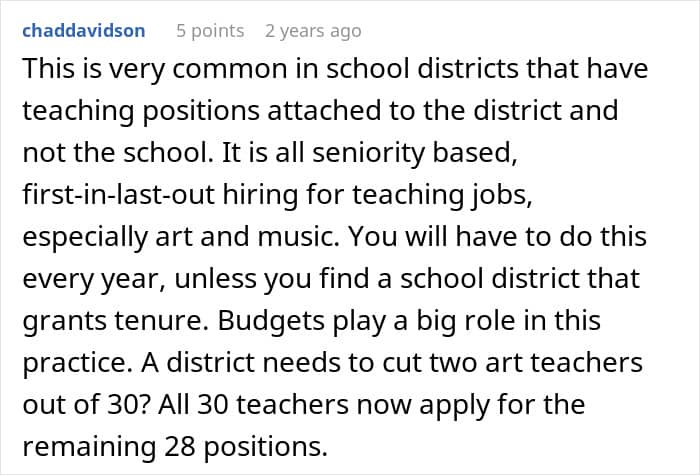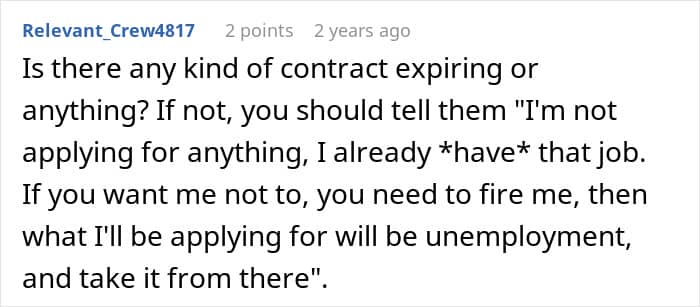If you’ve devoted time and effort to your job, you’d expect that loyalty to count for something.
But one school district worker found herself in a situation that was anything but typical. As the school year was ending, her boss told her she’d need to reapply for the very same position she’d already been doing.
How does that even happen? Read on to find out why—and whether she decided to stay.
RELATED:After working in the same role for a while, most people expect a bit of loyalty in return

So this woman couldn’t believe it when her boss told her to reapply for her own job
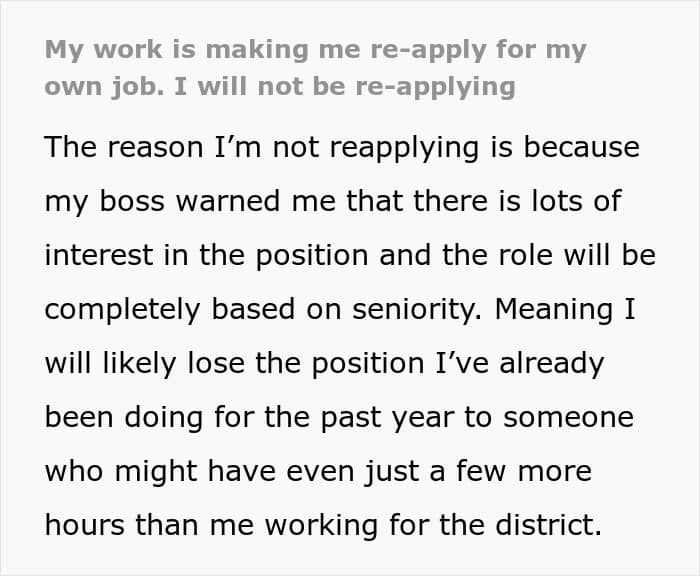
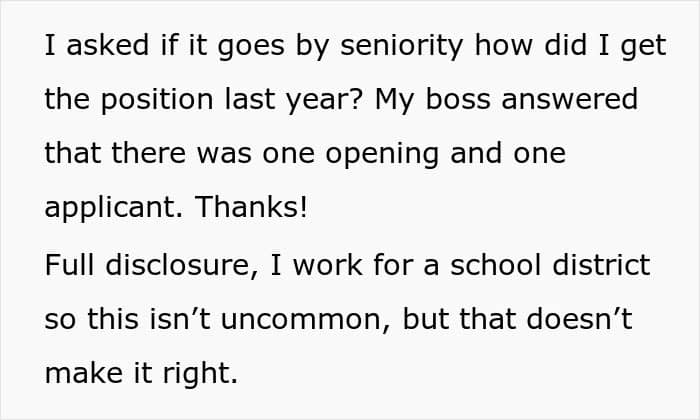



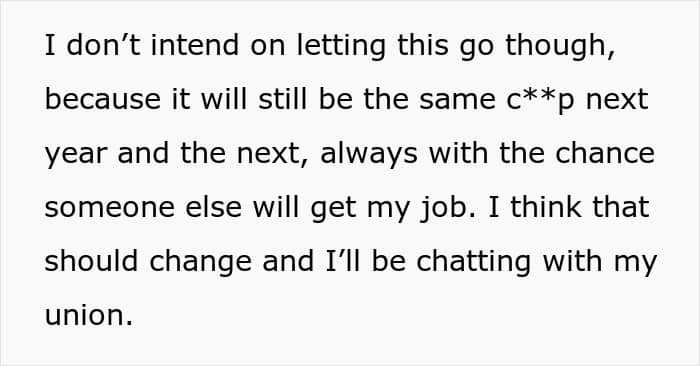
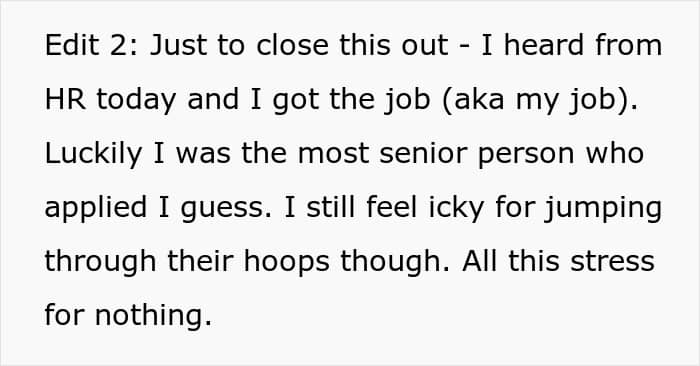
Recognition is the biggest driver of great work, employees say
Most of us spend a huge chunk of our lives at work. We pour our time, energy, and headspace into tasks, projects, meetings, and, let’s be honest, more than a few awkward conversations with coworkers.
So if you hate your job, that’s a big deal. But even if you don’t, it can still feel pretty soul-crushing when all your effort seems invisible, like you’re just another cog in the machine.
Especially when your boss treats you like you’re replaceable. You show up, do the work… and then suddenly hear, “By the way, there’s more interest in your role. You should reapply.” Or worse, they leave you on read.
It’s hard not to take that personally.
Sadly, feeling valued at work often feels more like a luxury than a norm. In fact, over 60% of U.S. employees say they feel unappreciated by their boss every single day, according to a poll by Bonusly.
And yet, studies show recognition is one of the biggest motivators out there. According to the Great Place To Work® Institute, feeling seen and appreciated drives people to do their best work.
The good news? You can tilt the odds in your favor, if you know where to push and how to be a bit more strategic with your efforts.
Experts shared some insights with Forbes on how to make your work stand out without feeling fake.
Turns out, a lot of it comes down to knowing how to frame your contributions and not being afraid to speak up.
It might feel awkward at first, but talking openly about what you’ve accomplished helps make sure your work gets noticed.

“As long as you’re not describing your contributions using superlatives or hyperbole, it’s not boasting and ensures you get the credit you earned. Leave the superlatives to your fan club!” says Kathy Bernhard, KFB Leadership Solutions.
One way to do this is by explaining not just what you did, but how you did it. Break down the steps you took, the challenges you faced, and even the lessons you learned along the way.
And if you want to avoid sounding like it’s all about you, give credit where it’s due. Shout out the teammates who helped you on the project. Show you’re a team player by framing your wins like this: “I’m thrilled our team achieved such great results on Project X.”
“Share the credit and thank the team members who worked with you. Recognize and focus on the benefits to others, when applicable. If you wait for others to value your contributions, it may never happen, so make it okay to share your wins regardless,” says Miriam Simon, Mi Sí Coaching and Consulting LLC.
And yes, networking matters. Building strong connections at work can help you find your people—those who’ll vouch for you, support you, and maybe even advocate for you when you’re not in the room. When that happens, you don’t have to work so hard to get noticed. They’ll help do it for you.
But don’t fall into the trap of chasing attention for the sake of it. Recognition works best when it’s earned naturally.
“Don’t do things to seek credit. Do things to add value and make a difference. When you stay focused, execute your responsibilities, communicate with your boss, stay away from work drama, work well with others, and make others look good, you will stand out and shine. People will notice you for the right reasons. Remember, the cream always rises to the top,” says Jason Ballard, Soar Higher Coaching & Training.
Readers were appalled by the situation and offered advice on how she should handle it
